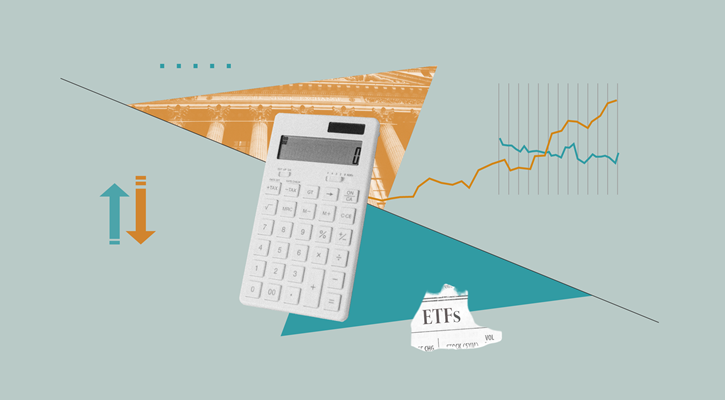ETFs are baskets of individual securities that—unlike OEICs or unit trusts--are traded and priced throughout the day on an exchange. Because they are traded on an exchange, the ETF – which usually replicates an index like the FTSE 100 or MSCI World - can be traded at a premium or discount to the actual value of the underlying stocks in the portfolio. The creation and redemption process of ETF units at the provider level (usually in 50,000 unit blocks), however, helps to
prevent the significant or sustained discounts or premiums that occur with investment trusts.
What’s more, ETFs are usually much cheaper than trackers that use a traditional OEIC or unit trust structure, as the fund companies do not have to administrate small individual accounts. Indeed, the average LSE-listed developed market equity ETF charges an annual total expense ratio of just 0.384%, while the average emerging-market equity ETF listed on the exchange charges just 0.74% per year. (Investors must pay brokerage commissions to buy and sell ETFs, just as they would with any equity share transaction.)
Brown's Change
The change in stamp duty law referred to in Gordon Brown’s pre-Budget Report may not be intuitively relevant to an individual investor. This is because investors don’t need to pay the obligatory stamp duty of 0.5% on ETFs, as they are required to do for shares. However, the change means a lot for the fund companies behind ETFs, and has the potential to greatly change how the ETF market is shaped and popularised in the UK.
Overseas ETF companies have historically avoided listing their offerings on the London exchanges because they get penalised with stamp duty for any foreign securities that are included in the ETF. Even though overseas securities are usually exempt from the tax, Treasury interpretation of the law meant that non-resident ETFs with underlying foreign securities were historically charged the 0.5% anyway. This substantially increases the total cost of the fund and deters asset firms from listing in the UK. At the end of the third quarter 2005, for example, London had attracted only 14 of the total 234 ETFs in Europe between 2000 and 2005.
What This Means for Investors
Ultimately, we believe there’s a lot of value in ETFs. They’re a cheap, efficient way for investors to gain exposure to equity and bond markets. By waiving the stamp duty tax for non-resident ETFs, Brown has withdrawn a major disincentive for fund companies to list their offerings in London. This could gradually increase the number and variety of ETFs offered to UK investors. In addition, it could help put downward pressure on ETF total expense ratios by reducing operational costs and increasing competition. More choice and lower costs strike us as a compelling proposition and clearly in the public interest. The only shame is that it took so long.








.jpg)



















